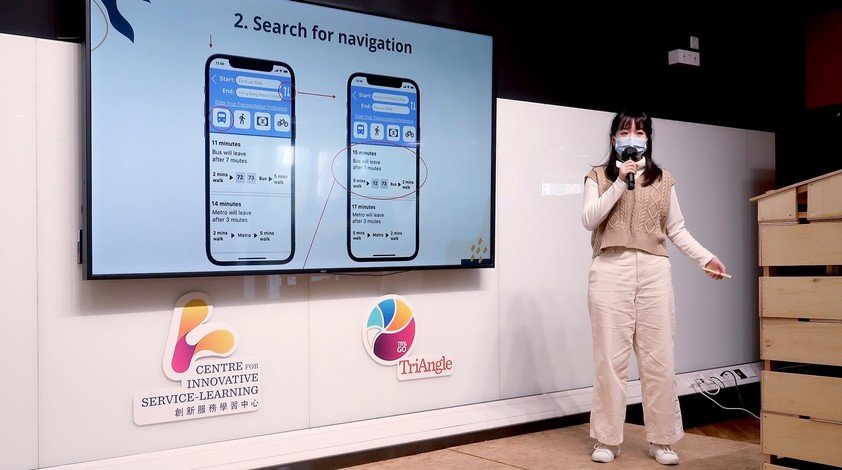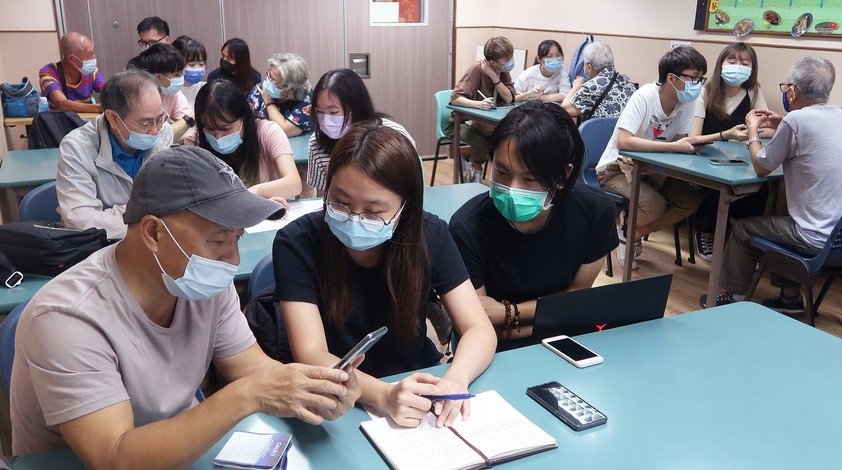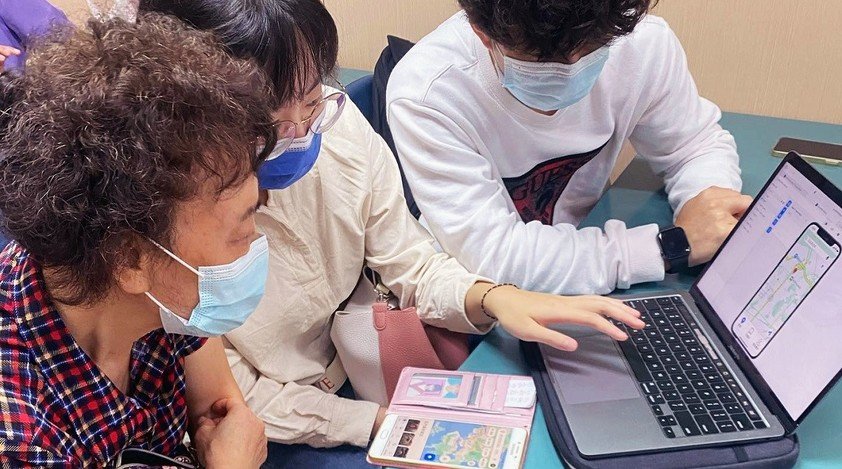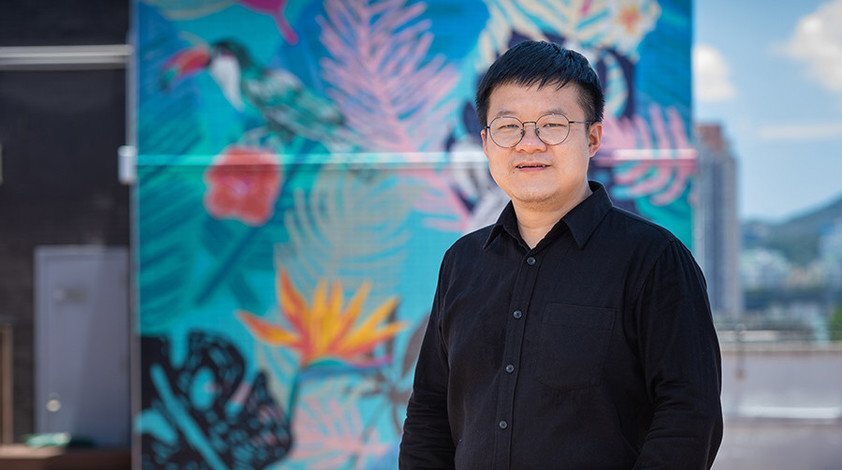discover hkbu
Service-Learning course improves technology use among older people
25 Feb 2022
Smartphones have completely transformed our lives, from the way we communicate to how we get around the city, look for entertainment and handle our personal finances. While younger generations outnumber senior citizens when it comes to the use of new technologies, older people are quickly embracing digital life. However, some may have trouble using smartphones due to their inexperience with technology.
To help make new technologies more accessible, a group of HKBU students conducted a project as part of the "Human-Computer Interaction" service-learning course, and they interviewed older people about the challenges they face when using smartphones and mobile apps. The students then developed app prototypes with modified user interfaces that can improve the accessibility of mobile phones and better meet the needs of the elderly.
Led by Dr Jin Yucheng of the Department of Computer Science, the students learnt about the different ways that users interact with computers and how redesigned user interfaces can improve system accessibility. They were also guided to apply design thinking methodologies to evaluate and develop user interfaces which can enhance the experience users have when using smartphones.
The students worked in teams of two or three and visited the Evangelical Lutheran Church Social Service – Hong Kong, Shatin District Community Centre for the Golden Aged, where they talked to a group of older adults about their habits and the challenges they face when using smartphones and mobile apps such as social media and navigation apps.
For the students, the opportunity to interview older people was an enriching learning experience. "Before taking this course, I never thought I would have the chance to talk to the users and apply the knowledge I’ve learnt in the classroom to real-life scenarios," said Zhao Minzhu, a fourth-year Data and Media Communication student. "I find the experience of talking to older people memorable and beneficial as it gives me insight into the challenges they have encountered in the digital age."
To address the elderly's concerns over inputting text on their devices, the students applied their knowledge to design prototypes of a new text-entry interface for smartphones. The teams then collected feedback from the elderly about the prototypes, and they modified their designs and developed enhanced features for mobile apps such as increased font size, more user-friendly hyperlinks and simplified payment processes. Some of the older people from the Community Centre attended the presentation by the students. They appreciated the teams' efforts and said they were eager to try the new features proposed in the project.
The service-learning course not only offered the students the opportunity to integrate academic study with meaningful community service, but it also broadened the students' perspectives and helped strengthen the dialogue between different generations. Tse Hoi-yi, a fourth-year student who is studying Information Systems and Analytics, said: "From conducting questionnaires, visits and evaluations, our team found out what kind of challenges the elderly face when using smartphone apps, and these challenges are different from what we imagined at the beginning of the course. It is important for us to approach a subject from different points of view and take people's advice so we can make changes for the better."
Dr Jin pointed out that the students, through interacting with older people during the programme, have developed more empathy and compassion towards others, and they have also identified several accessibility and functional issues in mobile apps which have not yet been fully addressed by mobile developers.
In addition, further insights can be gained from the course. "We plan to investigate some of the main accessibility issues," said Dr Jin. "We are also studying the impact of service-learning on human-computer interaction education with two distinct cohorts, namely young adults and older adults. We may consider publishing our findings in an academic journal."



